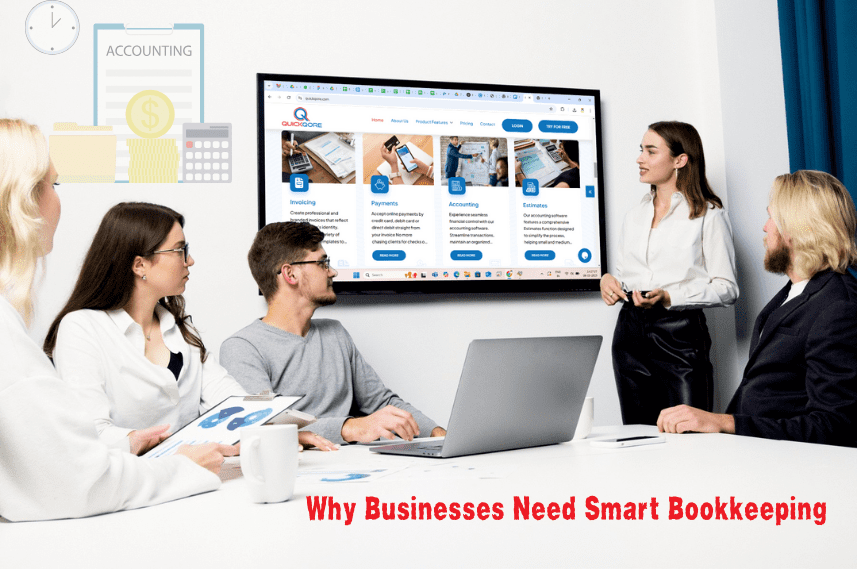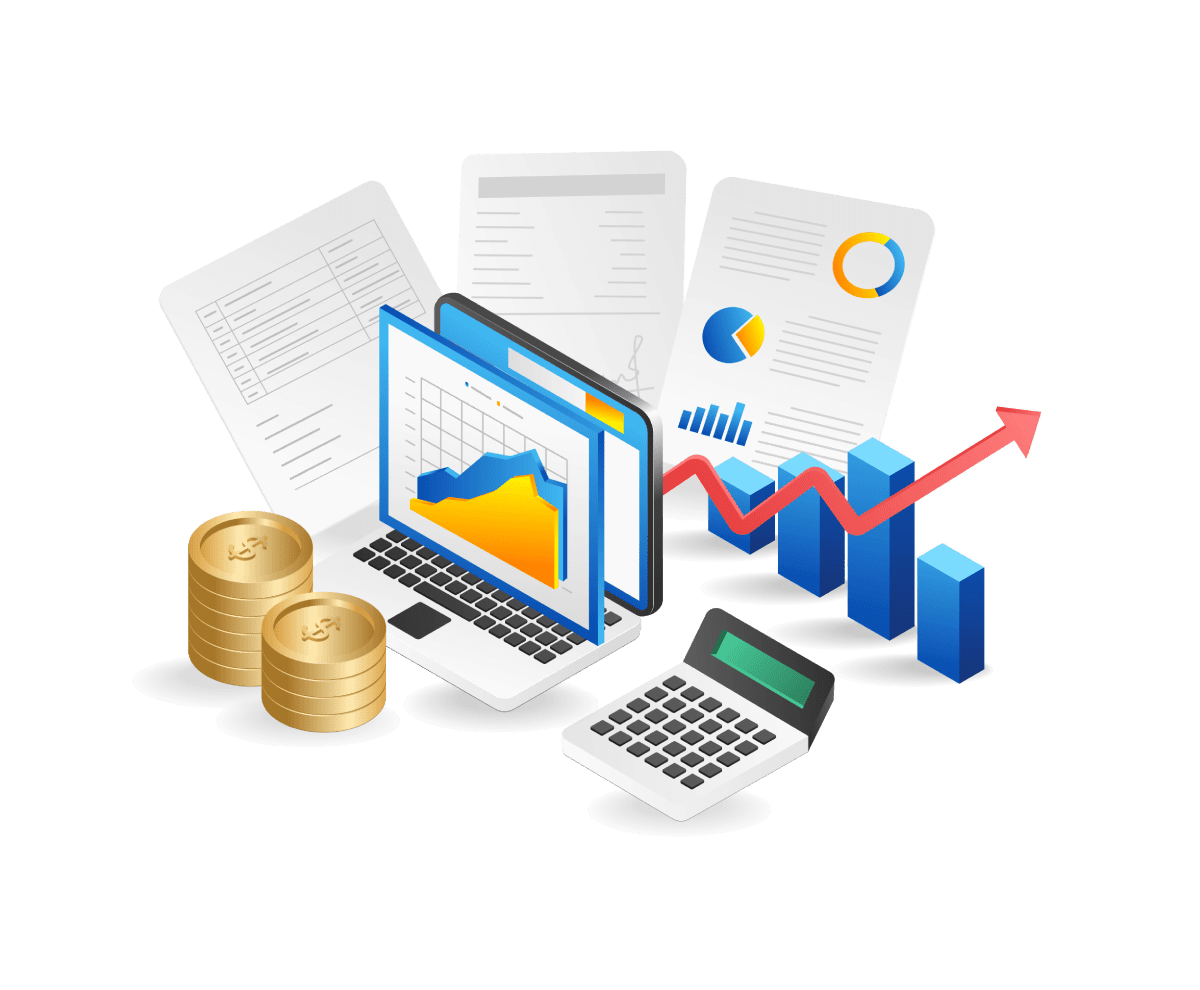Accounting is evolving rapidly, and staying updated with the best practices is crucial for financial success. An accounting app is a modern tool for managing financial transactions on the go, offering features like expense tracking, invoice management, and receipt scanning. Securing accounting data is paramount, as losing sensitive information can have severe consequences. With advancements in AI, automation, and regulatory changes, businesses must adapt to remain competitive. Here are the top accounting strategies for 2025 to keep your business financially strong and compliant.
1. Introduction to Accounting Solutions
Business accounting software is essential for small businesses to manage their financial transactions, track income and expenses, and make informed decisions about their business’s financial health. The best accounting software for small businesses provides a range of accounting features and accounting tools, including invoicing, expense tracking, and financial reporting. With the right accounting software, small business owners can streamline their financial processes, reduce errors, and focus on growing their business. Cloud accounting software, offers advanced features, online payments, and automatic payment reminders, making it an ideal choice for small businesses.
2. Key Features and Benefits
When choosing accounting software, small businesses should consider key features such as double-entry accounting, inventory management, and bank account integration. Bill management is a crucial feature for tracking payable amounts and scheduling payments, reducing the risk of late fees and ensuring better cash flow management. The ability to accept payments is also a key feature, as it helps manage overall cash flow and financial data. The software should also provide advanced tools, such as project tracking, mileage tracking, and vendor management. Accountant access is an important feature for managing financial data, enabling accountants to easily access and manage the information. Additionally, small businesses should look for accounting software that offers a free version or a free trial, allowing them to test the software before committing to a monthly subscription fee. Some accounting services offer unlimited invoices, accounts payable reports, and accept online payments, making it easier for small businesses to manage their cash flow.
1. Automate Financial Processes with AI
Manual bookkeeping is a thing of the past. Double entry accounting software automates the process of entering debits and credits, reducing the risk of manual errors. AI-powered accounting software like QuickQore can automate tasks such as:
- Data entry and bank reconciliations
- Invoice processing, accounts receivable, and expense tracking
- Tax calculations and compliance checks
- Using AI improves efficiency, reduces errors, and saves time.
2. Maintain Real-Time Financial Insights
In 2025, businesses must rely on real-time financial data to make informed decisions. Cloud-based accounting software enhances a business’s financial health by providing real-time insights, facilitating efficient data management, and improving decision-making. Cloud-based accounting software provides up-to-date reports, allowing you to:
- Monitor cash flow instantly
- Emphasize the importance of managing cash flow using real-time financial data
- Track expenses and revenue trends
- Generate financial statements with accuracy
Additionally, generating a balance sheet is crucial for financial analysis, helping to assess financial status, secure loans, or attract investors.
Automating bank transactions enhances financial oversight by integrating bank feeds, automatically importing transactions, and ensuring daily reconciliation.
3. Ensure Compliance with Changing Regulations
Tax laws and financial regulations are constantly evolving. Using online software for accounting can help secure financial data and ensure compliance. Stay compliant by:
- Keeping updated on IRS guidelines and reporting requirements
- Using automated compliance tools
- Utilizing accounting software to simplify processes during tax time
- Utilizing accounting software to keep your books organized and reduce errors during tax season
- Consulting tax professionals to avoid penalties
4. Enhance Cybersecurity in Financial Data
With increased digital transactions, using online accounting software to securely manage financial data is more important than ever. Best practices include:
- Implementing multi-factor authentication (MFA)
- Ensuring a secure internet connection for accessing cloud-based financial data from any location
- Encrypting financial records
- Regularly updating security protocols to prevent cyber threats
5. Adopt Digital Payments and E-Invoicing with QuickQore
Streamline transactions with digital payments and e-invoicing to:
Reduce paperwork and processing delays. The software makes it extremely easy to upload receipts and create invoices. Additionally, it allows users to create professional invoices effortlessly, ensuring accuracy and efficiency even for those with no prior accounting experience.
Improve cash flow management. A key benefit is the ability to send unlimited invoices, even in the free version. Sending invoices is crucial for service-based businesses as it helps generate and customize invoices, manage corresponding payments, and streamline workflows for effective income and expense tracking.
Enhance customer and vendor relationships with quick payments
6. Optimize Tax Strategies for Maximum Savings
Proactive tax planning helps businesses save money. Free accounting software options are available for small businesses, offering cost-effective solutions for micro businesses with basic needs. Key strategies include:
- Leveraging AI for automated tax deductions
- Taking advantage of small business tax credits
- Accurately tracking deductible expenses throughout the year
Understanding annual revenue thresholds is essential for tax planning, as it can determine eligibility for various tax benefits and credits.
Accurately calculating sales tax is crucial for effective tax planning, as it ensures compliance and helps avoid potential penalties.
7. Focus on Financial Forecasting & Budgeting
Predictive analytics and AI-driven forecasting are game-changers. Tracking income is crucial for accurate financial forecasting as it helps businesses efficiently record, manage, and analyze their financial transactions. Improve financial planning by:
- Using AI tools to project future revenue and expenses
- Setting realistic budgets based on historical data
- Generating a cash flow statement for accurate financial forecasting
- Leveraging real-time insights into your business’s financial health to enhance financial forecasting
- Identifying cost-saving opportunities early
8. Implement ESG Accounting for Sustainable Growth
Environmental, Social, and Governance (ESG) accounting is becoming essential. Bookkeeping software is a vital tool for businesses to efficiently manage their financial transactions and gain real-time insights. Businesses should:
- Track and report carbon footprint and sustainability efforts
- nsure ethical financial practices
- Align with ESG compliance frameworks for better stakeholder trust
For service-based businesses, ESG accounting is particularly important as it helps tailor financial management to their specific needs, such as customizable invoicing and profitability insights.
Implementing ESG accounting practices can significantly enhance a business’s financial health by providing real-time insights and facilitating data-driven decision-making.
9. Accounting Services and Support
Accounting services and support are essential for small businesses to manage their finances effectively. The best accounting software for small businesses should offer a comprehensive range of services, including invoicing, expense tracking, and financial reporting. Additionally, it should provide robust support through multiple channels, such as phone, email, and live chat, ensuring that help is always available when needed.
Some accounting software also offers access to a community of users and experts, where businesses can ask questions and get help with any issues they may encounter. For instance, QuickQore Online offers 24/7 phone and chat support, making it a reliable choice for small business owners who need immediate assistance. Similarly, provides online support and a community forum, allowing users to connect with peers and experts for advice and troubleshooting.
When choosing accounting software, small business owners should consider the level of support offered and whether it meets their needs. Comprehensive support can make a significant difference in managing financial processes smoothly and efficiently.
10. Mobile Accounting
In today’s fast-paced business environment, mobile accounting is a crucial feature for small businesses that need to manage their finances on the go. The best accounting software for small businesses should include a mobile app that allows users to access their financial data, send invoices, and track expenses from their smartphone or tablet.
Mobile accounting apps should be secure and provide real-time updates, so businesses can stay on top of their finances at all times. Popular mobile accounting apps offer a range of features, including invoicing, expense tracking, and financial reporting. These apps enable users to manage their finances from anywhere, at any time, ensuring that they never miss a beat.
With mobile accounting, small business owners can handle their financial tasks efficiently, even when they are away from their desks. This flexibility is invaluable for maintaining control over their business’s financial health.
11. Accounting Software Cost and Value
The cost of accounting software can vary depending on the provider and the features included. Free plans are particularly suitable for very small businesses with basic needs, as they often provide essential features without overwhelming complexity. It is important to evaluate the pricing plans offered by different providers to find the best fit for your business needs. Some accounting software, such as Wave, offers a free plan, while others, charge a monthly subscription fee. Small businesses should consider the value they receive from the accounting software, including the ability to manage invoices, track income, and generate financial reports. When evaluating accounting software cost, small businesses should also consider the cost of add-ons, such as payroll processing and tax compliance. By choosing the right accounting software, small businesses can save time and money, and improve their overall financial health.
12. Integration with Other Tools
Accounting software should integrate seamlessly with other tools and services, such as bank accounts, credit card statements, and third-party apps. Small business accounting software is essential for integrating with these tools to manage finances efficiently. Effective inventory tracking is also crucial for financial management, especially for businesses in retail, manufacturing, and professional services. This integration allows small businesses to streamline their financial processes, reduce errors, and improve their overall financial management. Some accounting software, offers integration with over 1,000 third-party apps, making it an ideal choice for small businesses that use a range of tools and services. By integrating accounting software with other tools, small businesses can improve their cash flow, reduce their accounting software cost, and make more informed decisions about their business.
13. Choosing the Right Accounting Software
Choosing the right accounting software for small businesses can be a daunting task, with so many options available. It is important to consider the need for multiple users, as costs can increase significantly when requiring access for collaborative capabilities across teams and departments. Small businesses should consider their specific needs, including the number of users, the type of business, and the level of accounting expertise. They should also consider the features and benefits of each accounting software, including invoicing, expense tracking, and financial reporting. By evaluating these factors and considering the accounting software cost and value, small businesses can choose the right accounting software for their needs and improve their overall financial health. Additionally, small businesses should read reviews, ask for referrals, and try out free trials to find the best accounting software for their business.
Conclusion: Future-Proof Your Accounting in 2025
Adopting these best practices will help businesses stay competitive, compliant, and financially healthy in 2025. QuickQore’s AI-powered solutions make it easier to manage finances efficiently, reduce risks, and maximize growth opportunities. Unlike other accounting software, QuickQore offers unique features such as advanced AI capabilities and seamless cloud-based integration, making the transition from previous software smooth and beneficial.
Ready to take your accounting to the next level? Explore QuickQore today!

